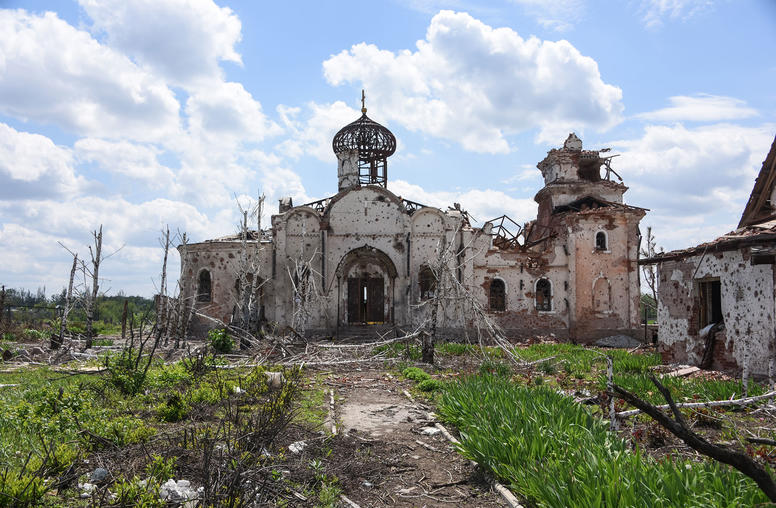 Ukraine
Ukraine
Today, Ukraine is fighting to save its young democracy against an unprovoked and unjustified Russian invasion. Long plagued by corruption and a weak rule of law and traditionally separated by language and religion, Ukrainians have united in defense of their national sovereignty and, with international assistance and support, managed to stifle early Russian military advances. But to stave off Russian aggression in the long term — as well as rebuild in the aftermath — Ukraine will need to maintain this unity. USIP provides analysis and support for policies that can help sustain Ukrainian democracy in the face of Russia’s invasion and facilitate the dialogue and diplomacy that will be required to ultimately defeat it.
Featured Research & Analysis

Can India Advance Peace in Ukraine?
Since the start of Russia’s war in Ukraine, India has worked to protect its strategic relationship with Russia while maintaining its burgeoning ties with the United States and Europe. India’s balancing act was on display earlier this year when Prime Minister Narendra Modi visited Russia in July and made a historic trip to Ukraine the following month. Modi has portrayed a neutral stance on the Ukraine war and positioned India as a key player in any potential peace process.

Donald Jensen on the War in Ukraine’s Trajectory
As Ukraine considers the “politically loaded” question of whether to lower the age of military mobilization, Putin increasingly sees the war “not just as a land grab, but as a civilizational battle between Russia and the West,” says USIP’s Donald Jensen, adding: “We should not think that the war is anything close to being settled.”

Ukraine: The Inflection Point in the China-Russia Axis
The ongoing conflict in Ukraine has catalyzed a profound shift in global power dynamics: the deepening of the partnership between China and Russia. This relationship, while rooted in history, represents a significant departure from previous patterns of cooperation. China-Russia ties have evolved from a transactional relationship of convenience to a more durable strategic alignment, while continuing to fall short of a full-blown military alliance. This development challenges traditional Western assumptions about the limits of authoritarian cooperation and may signal the emergence of a new model of international partnership.
Current Projects

Religion and Conflict Country Profiles
USIP’s Religion, Peace and Conflict Country Profiles (RPACCs) are concise analytic overviews of the religious landscape in countries at risk of, currently experiencing or recovering from violent conflict. RPACCs are intended to be used primarily by policymakers and practitioners looking to develop rapid familiarity with the nature and status of religion in a given country of interest as well as to understand how religion intersects with conflict and peace dynamics. The RPACC series is an outgrowth of USIP’s previous work on Religious Landscape Mapping in Conflict-Affected States.